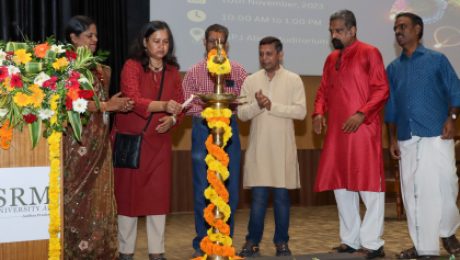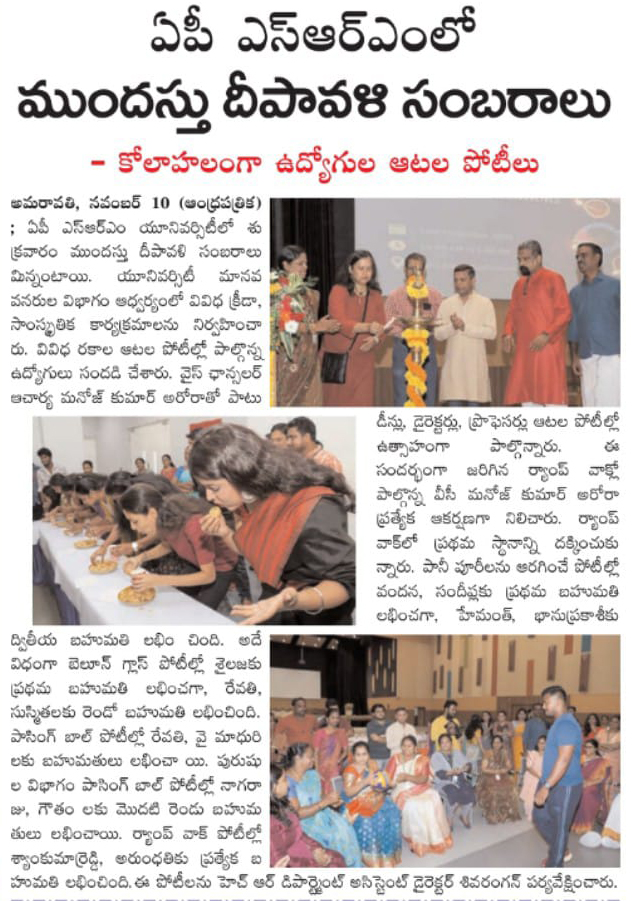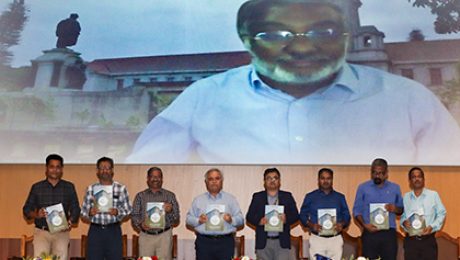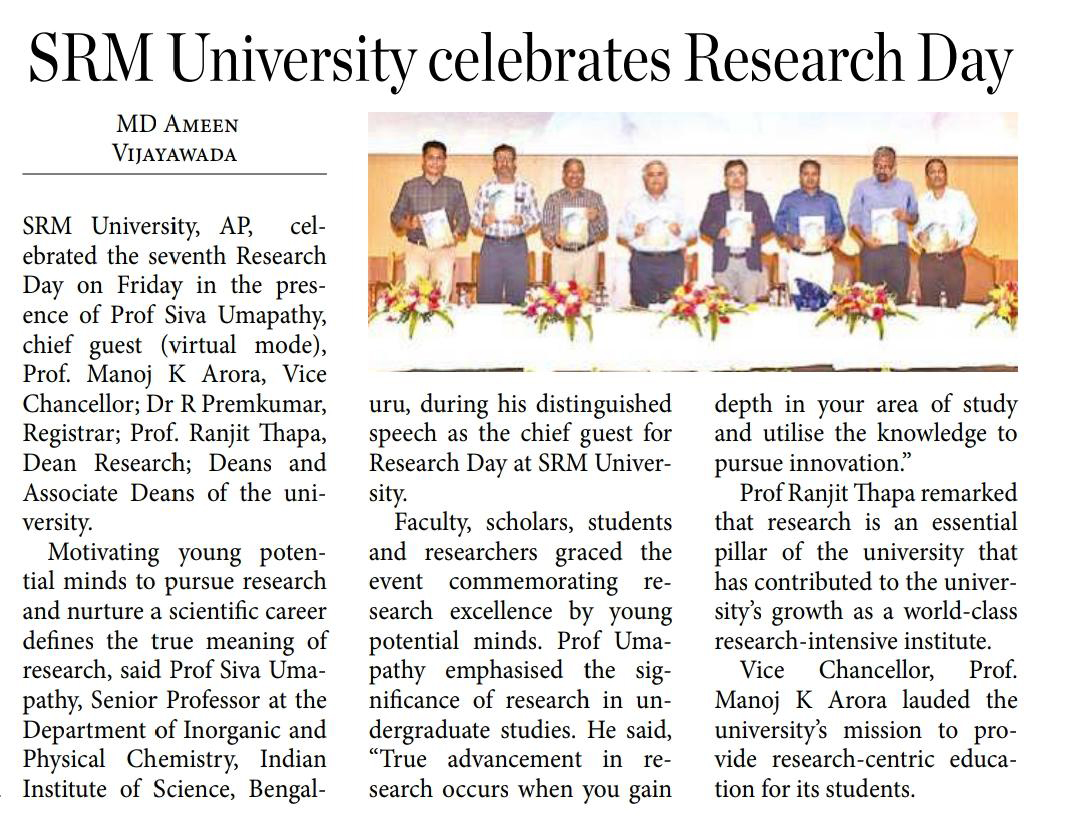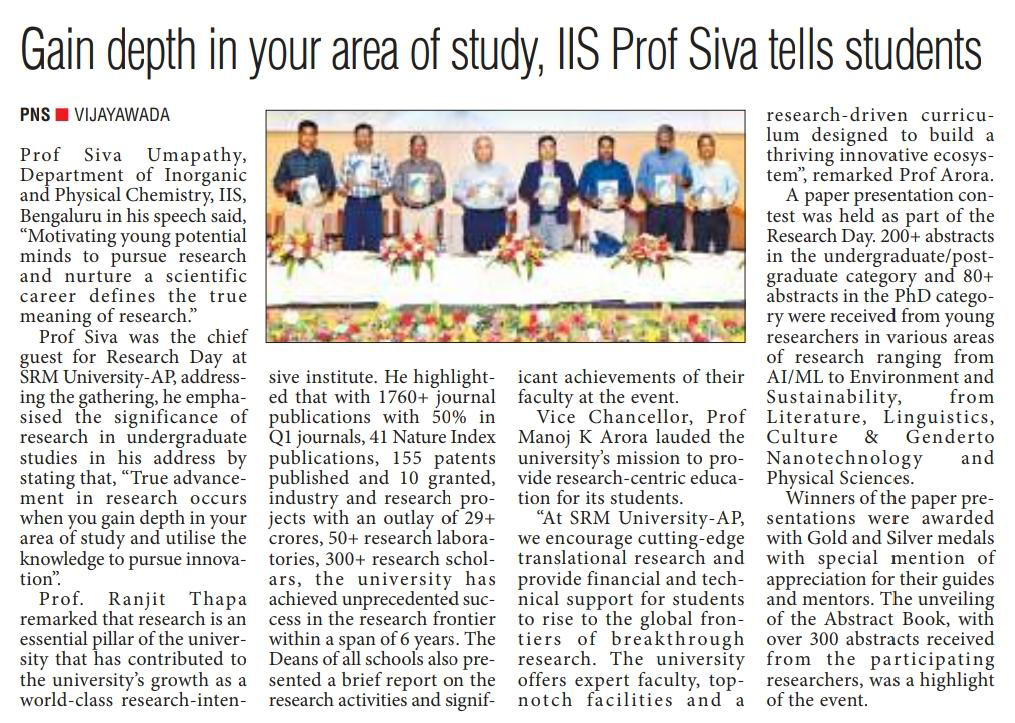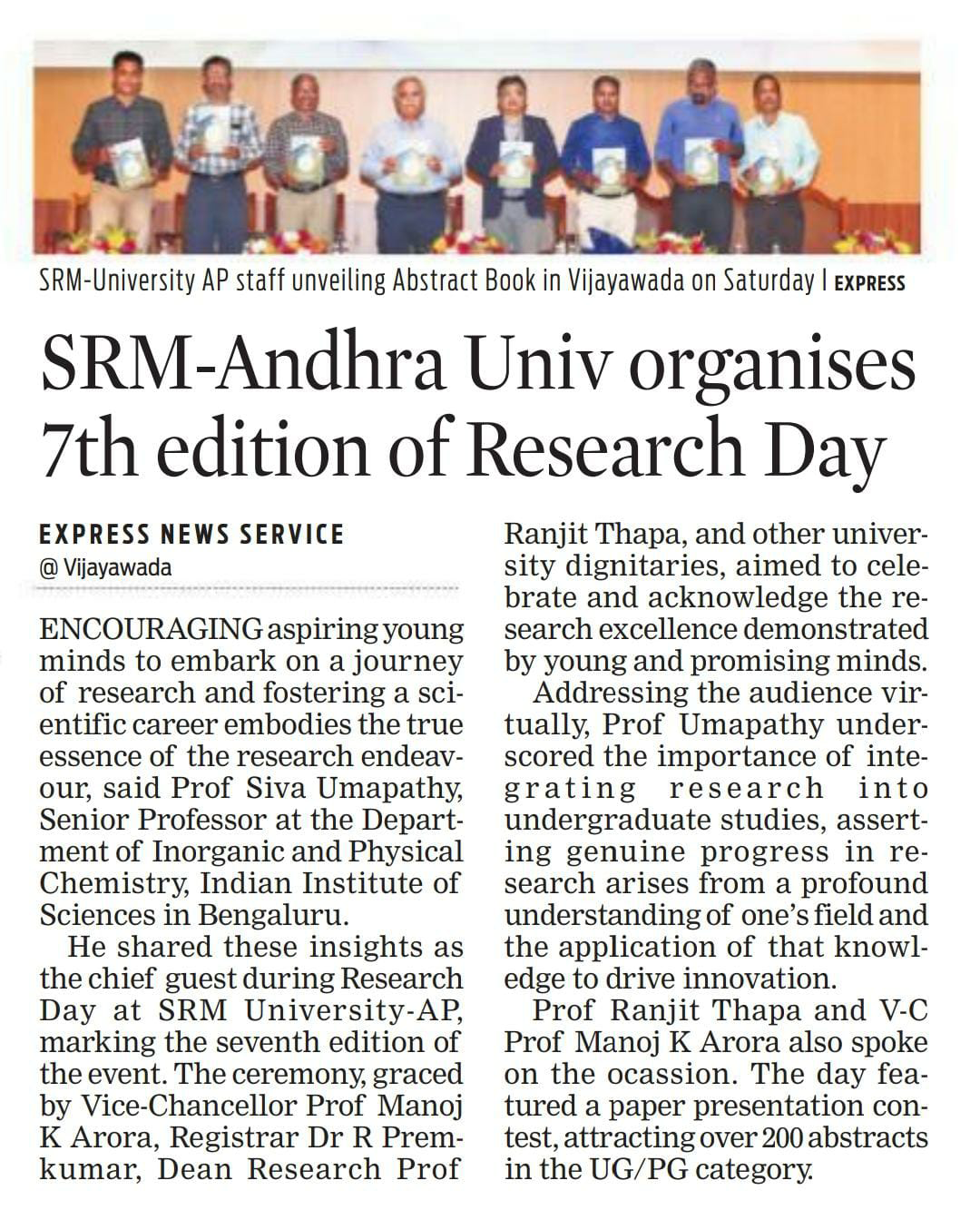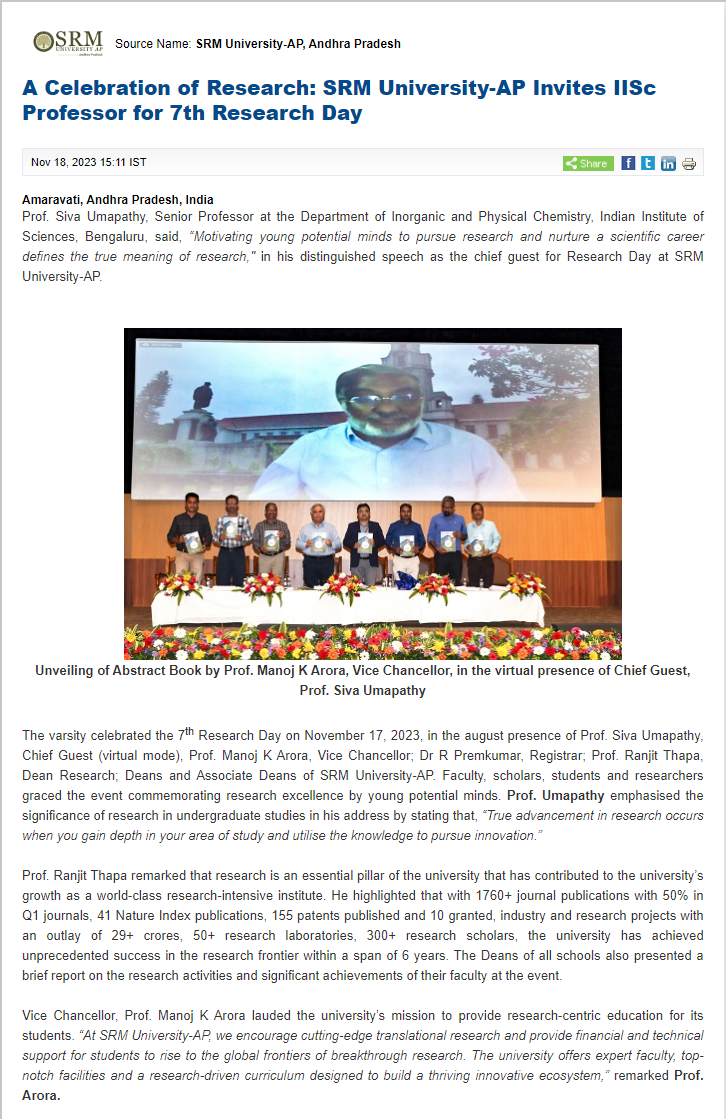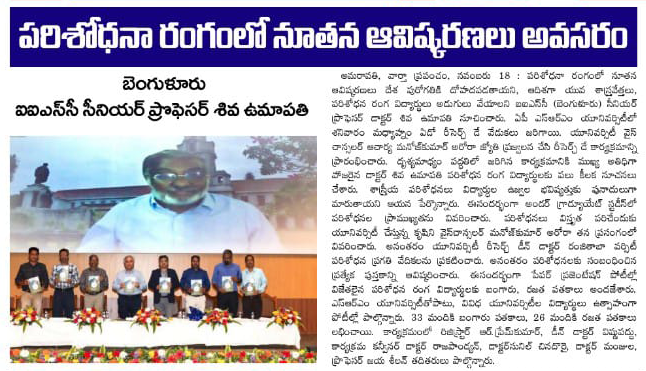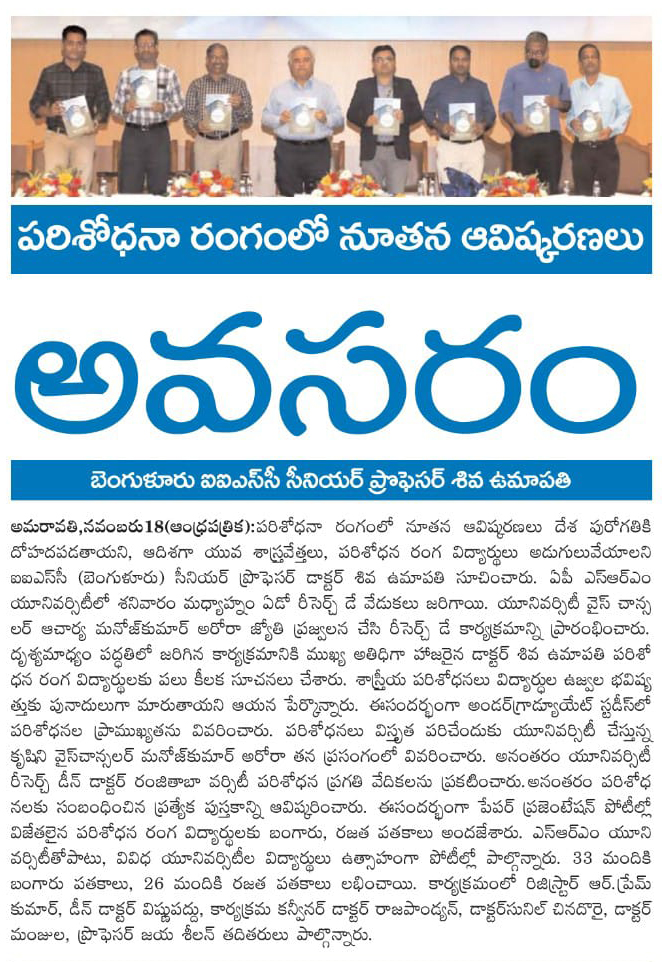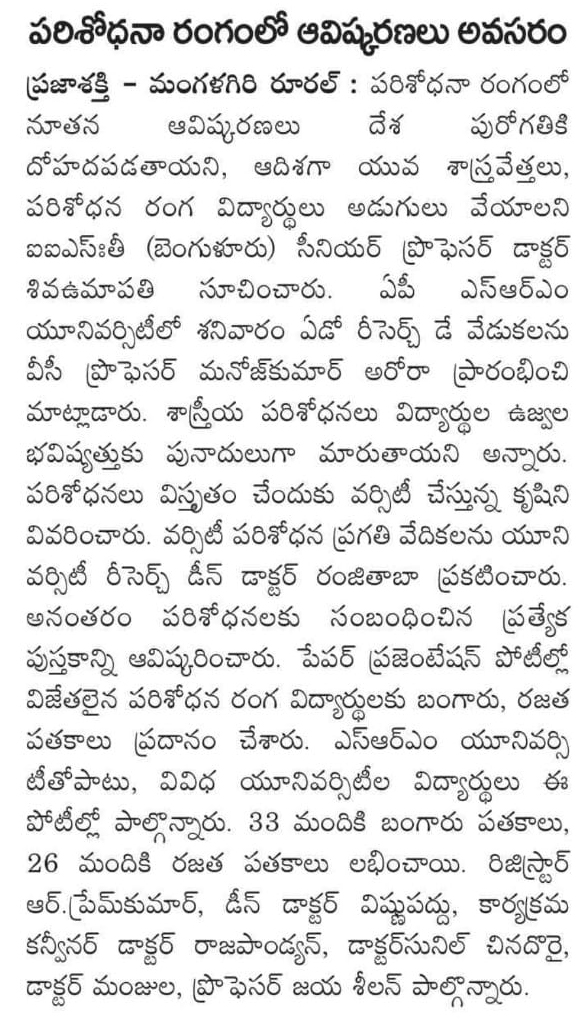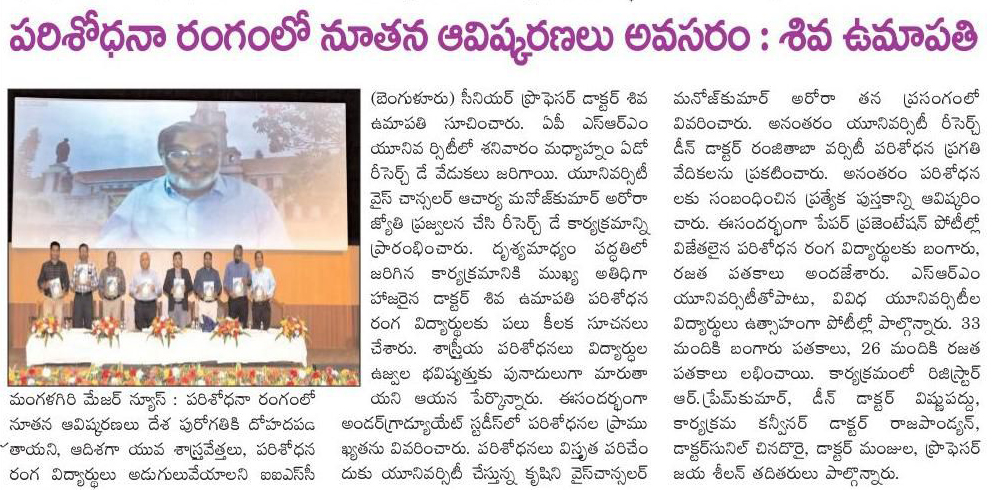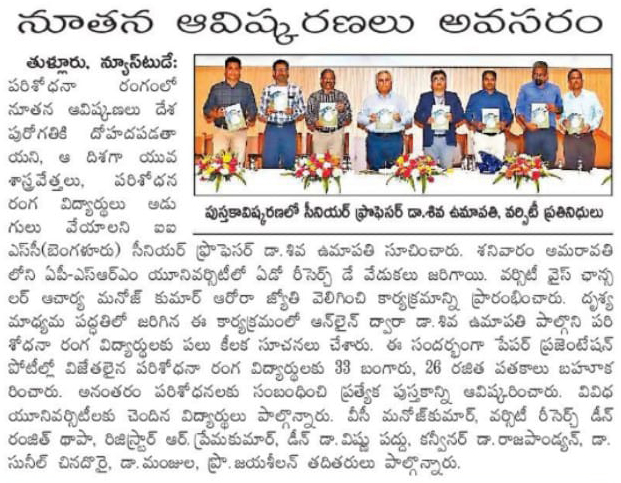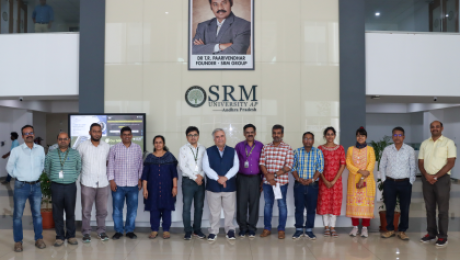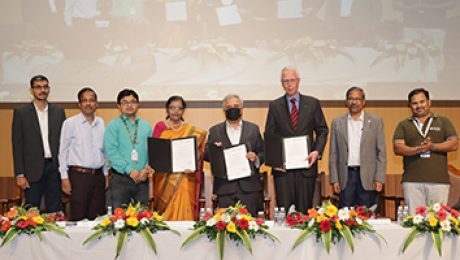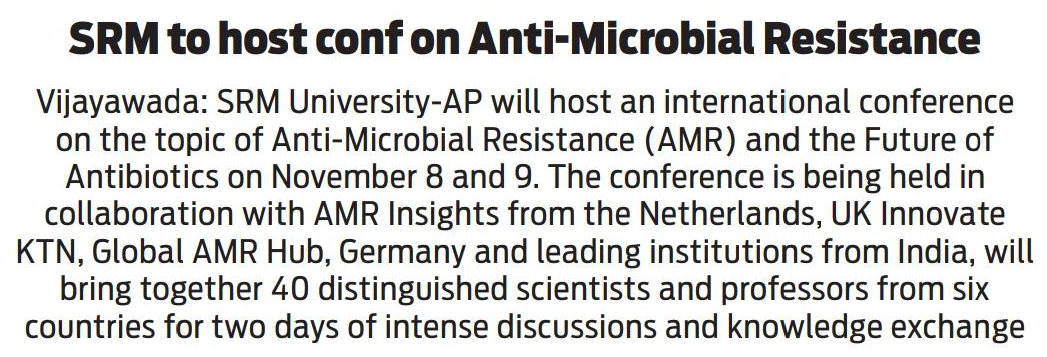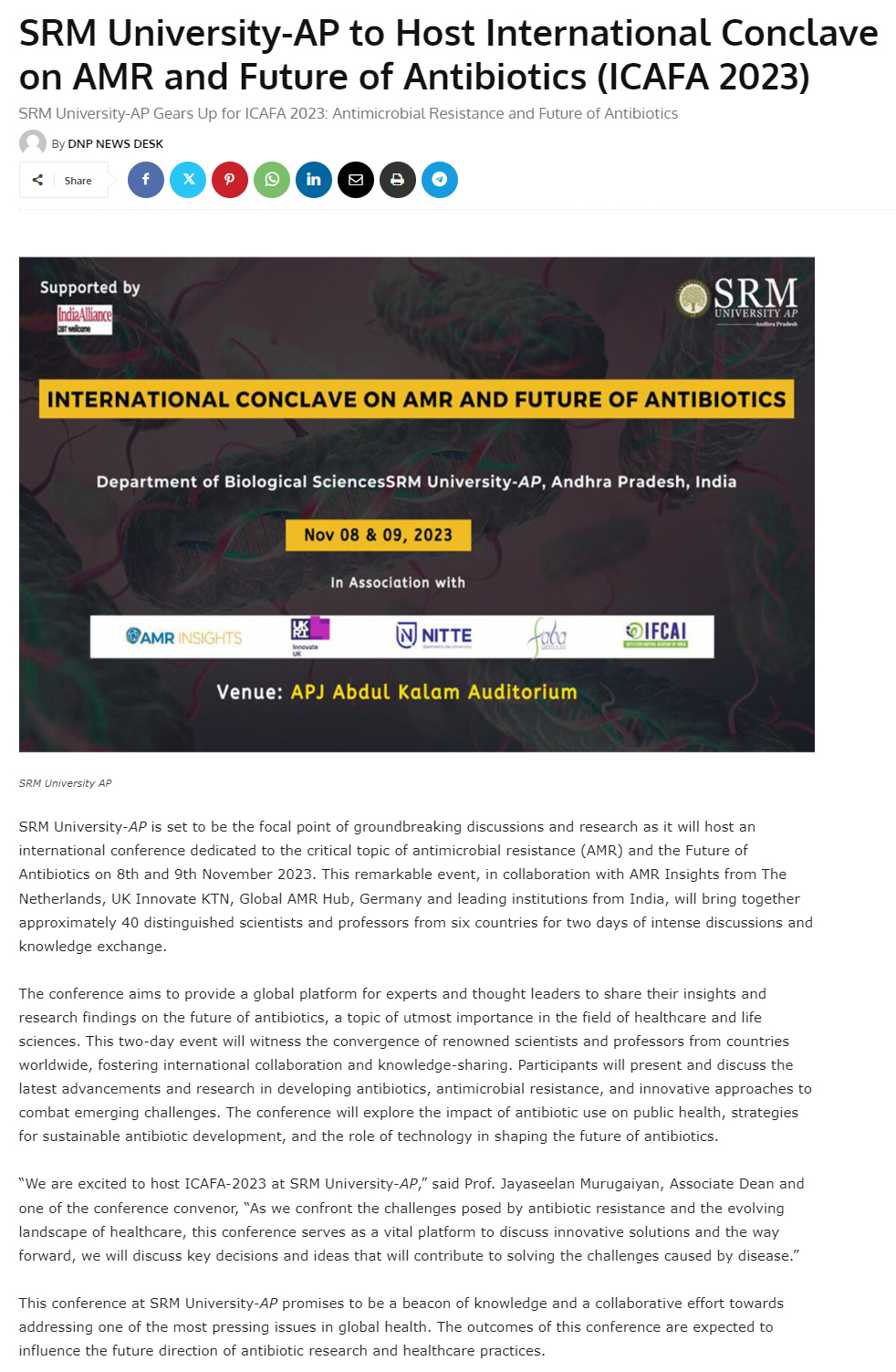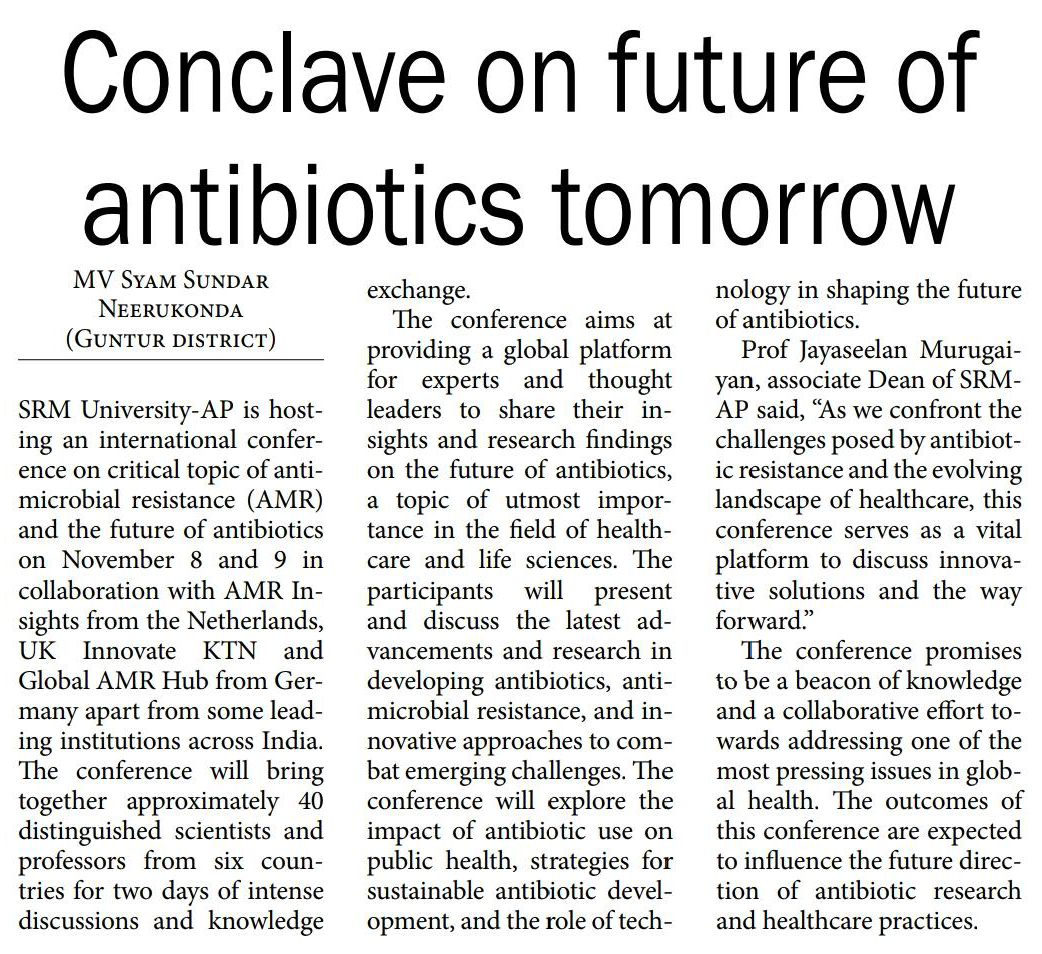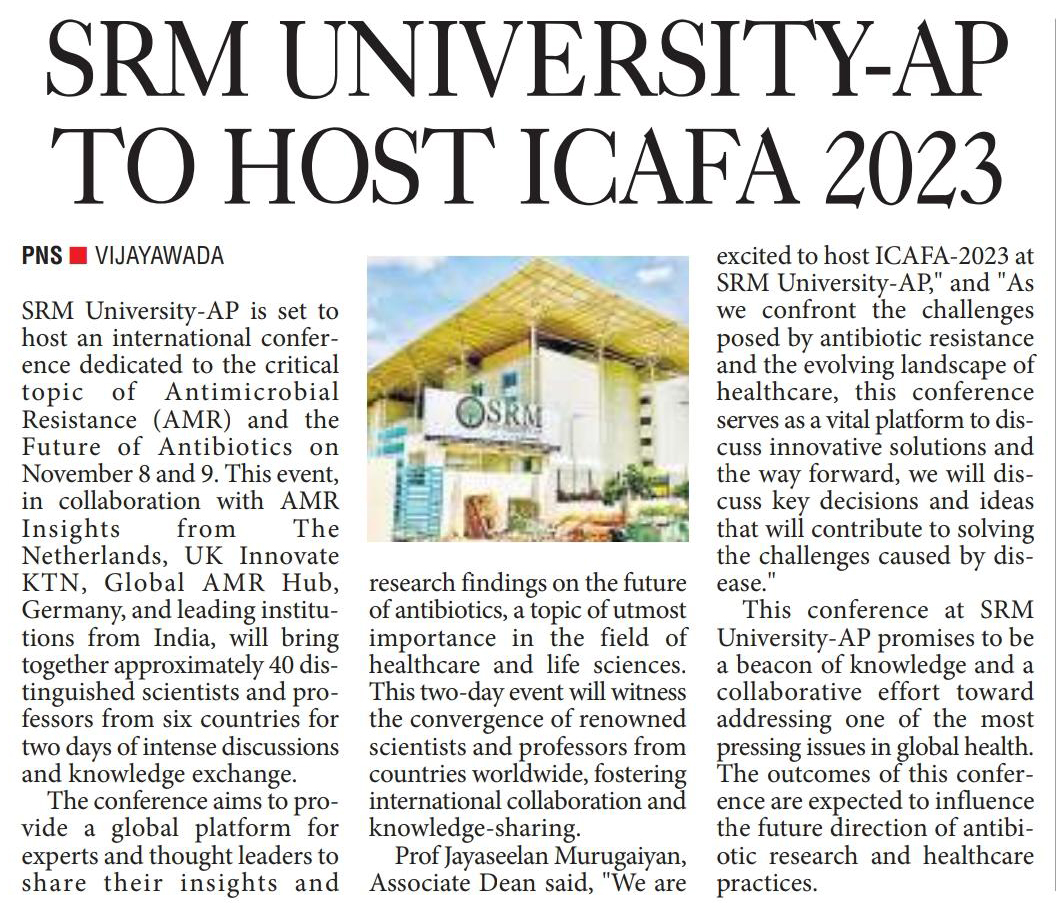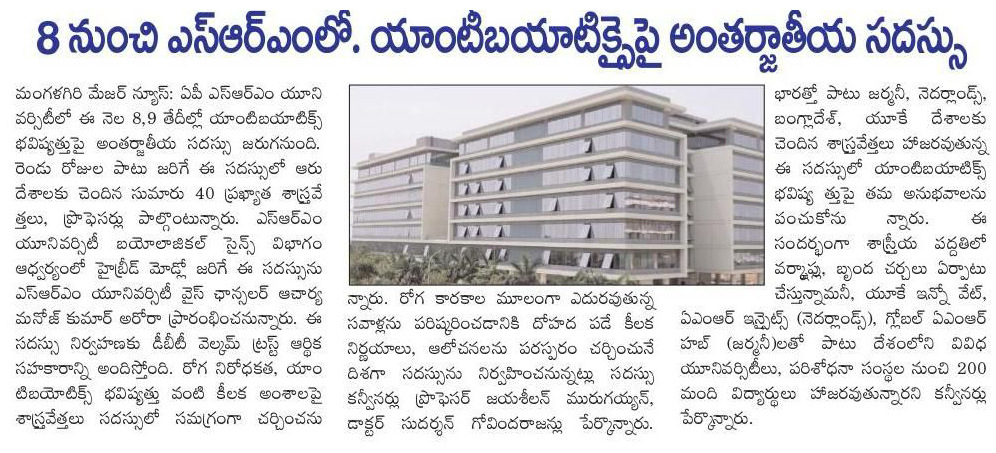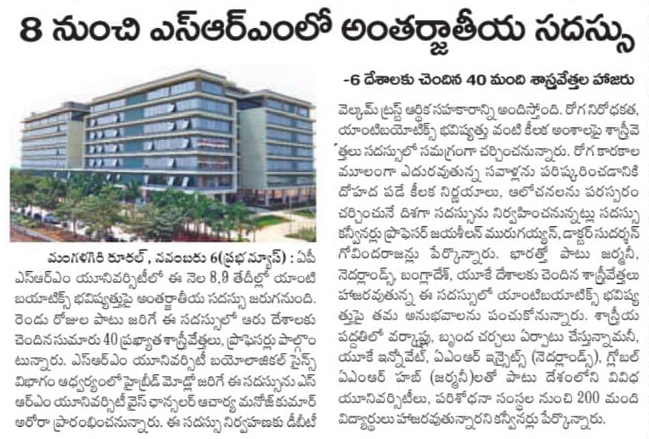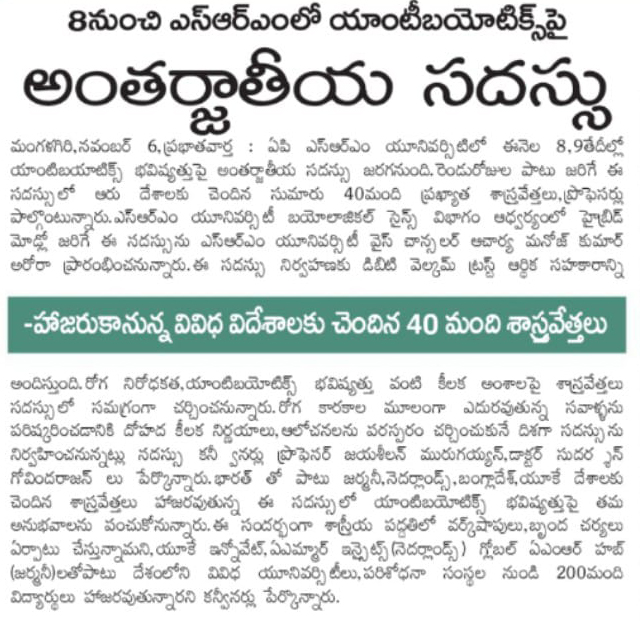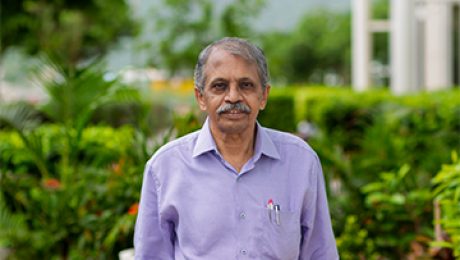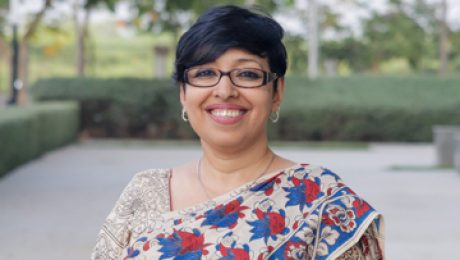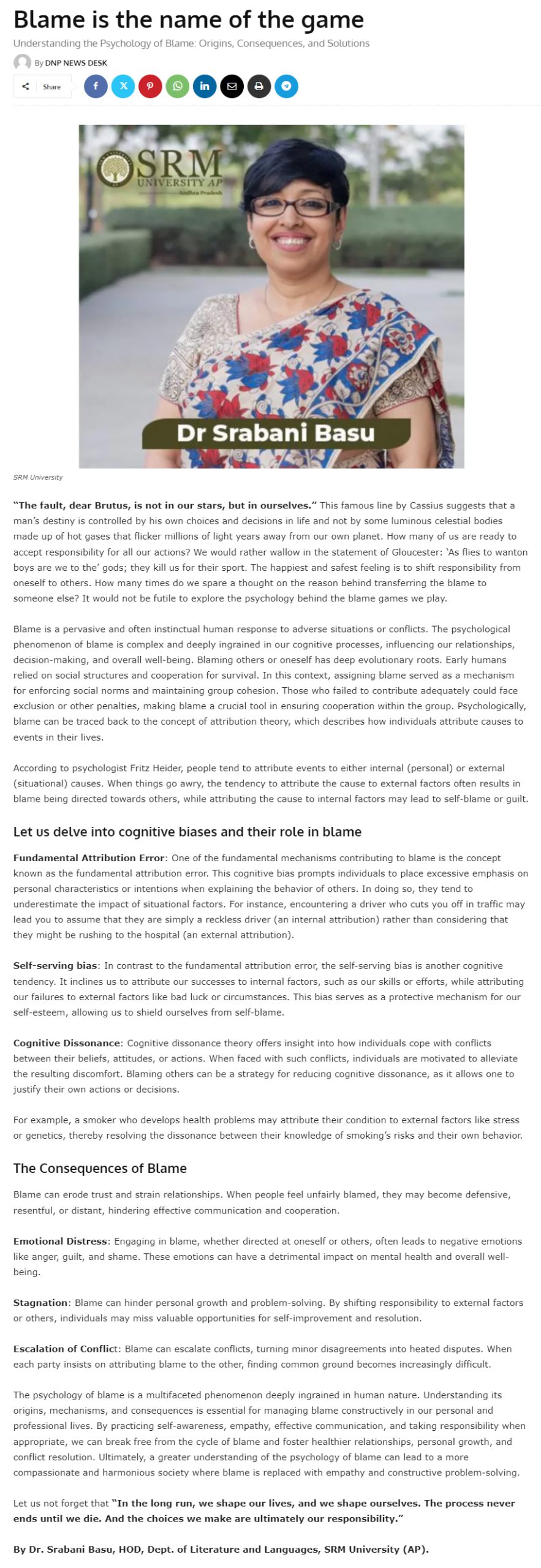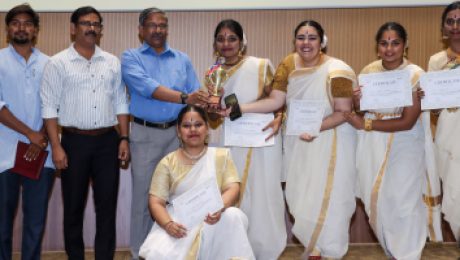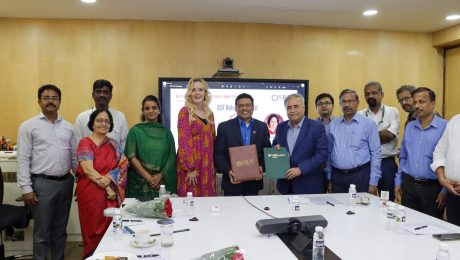7th Research Day Celebrations
- Published in Newsroom
SRM University-AP Receives DST-FIST Grant of Rs 1.4 Crores for Mechanical Engineering Department
The Hindu

Deccan Chronicle

The Hans India
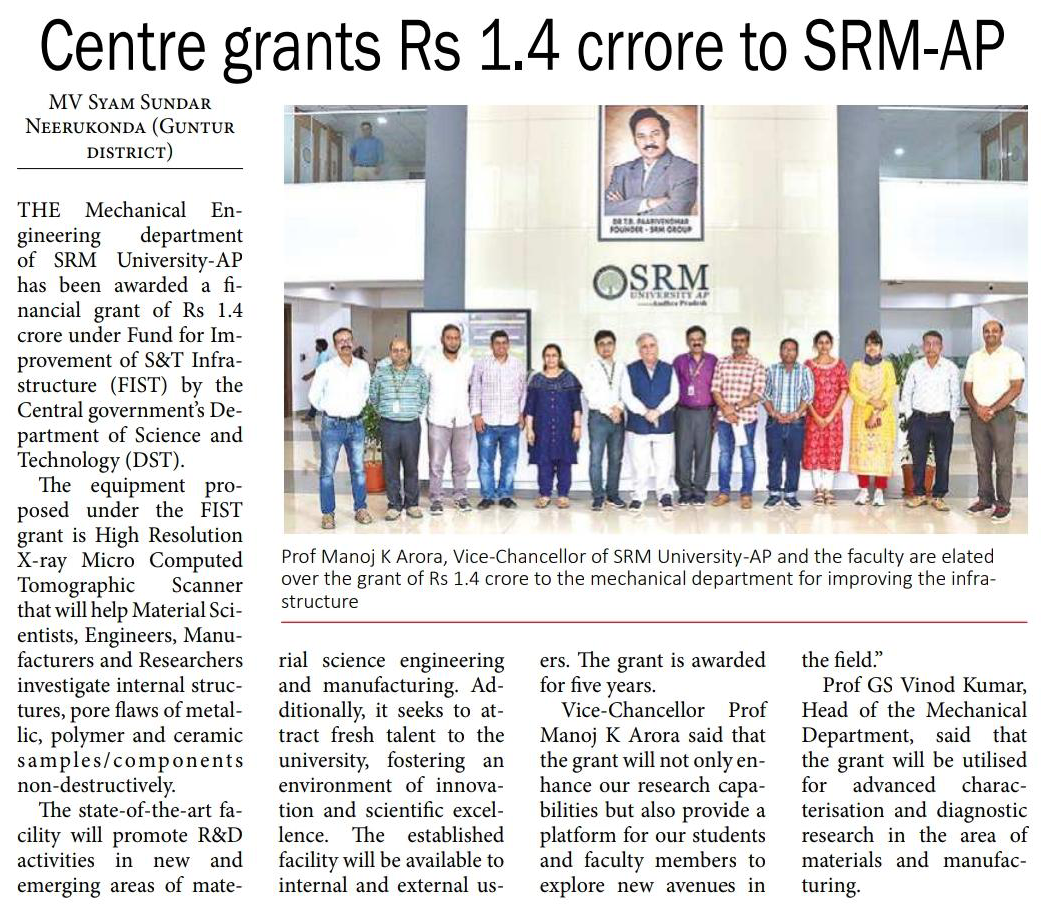
The Pioneer
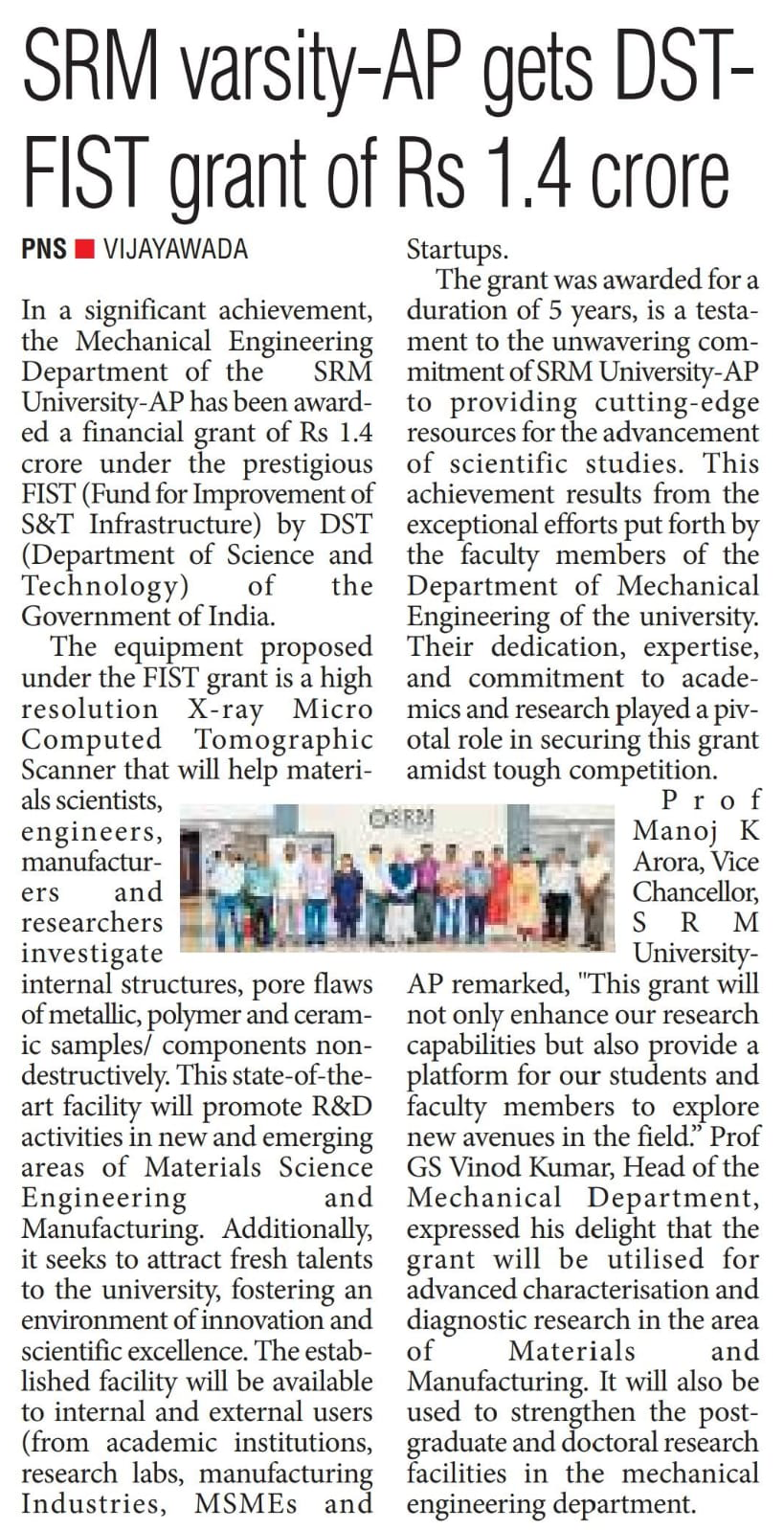
Vartha
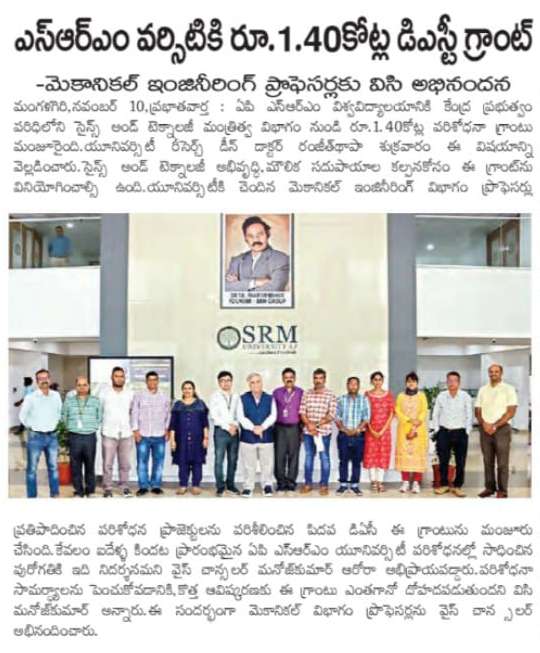
Andhra Prabha
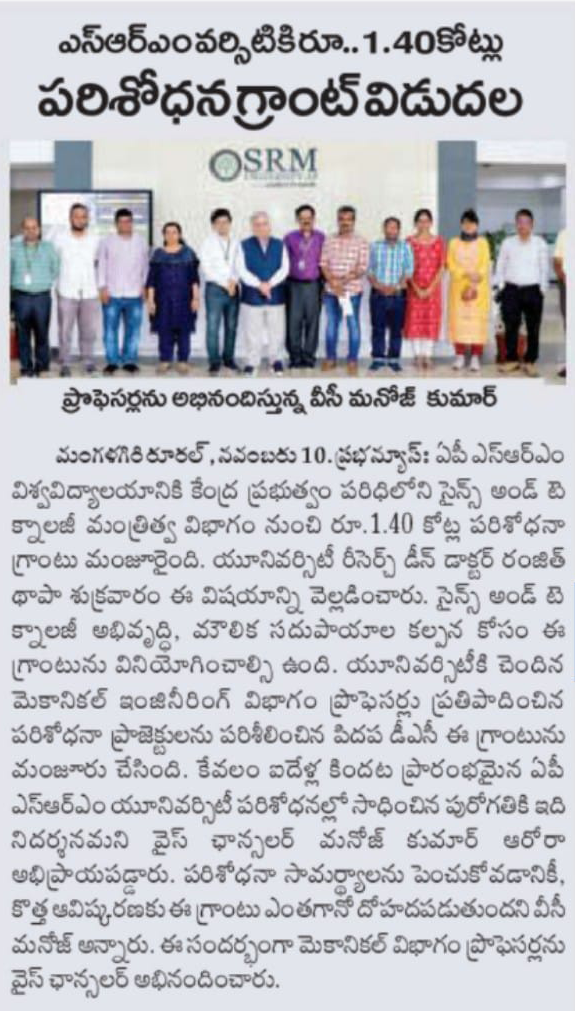
Praja Sakthi
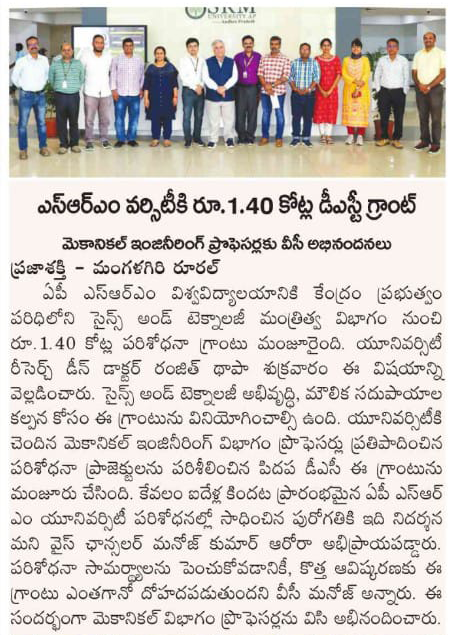
Andhra Patrika

Surya
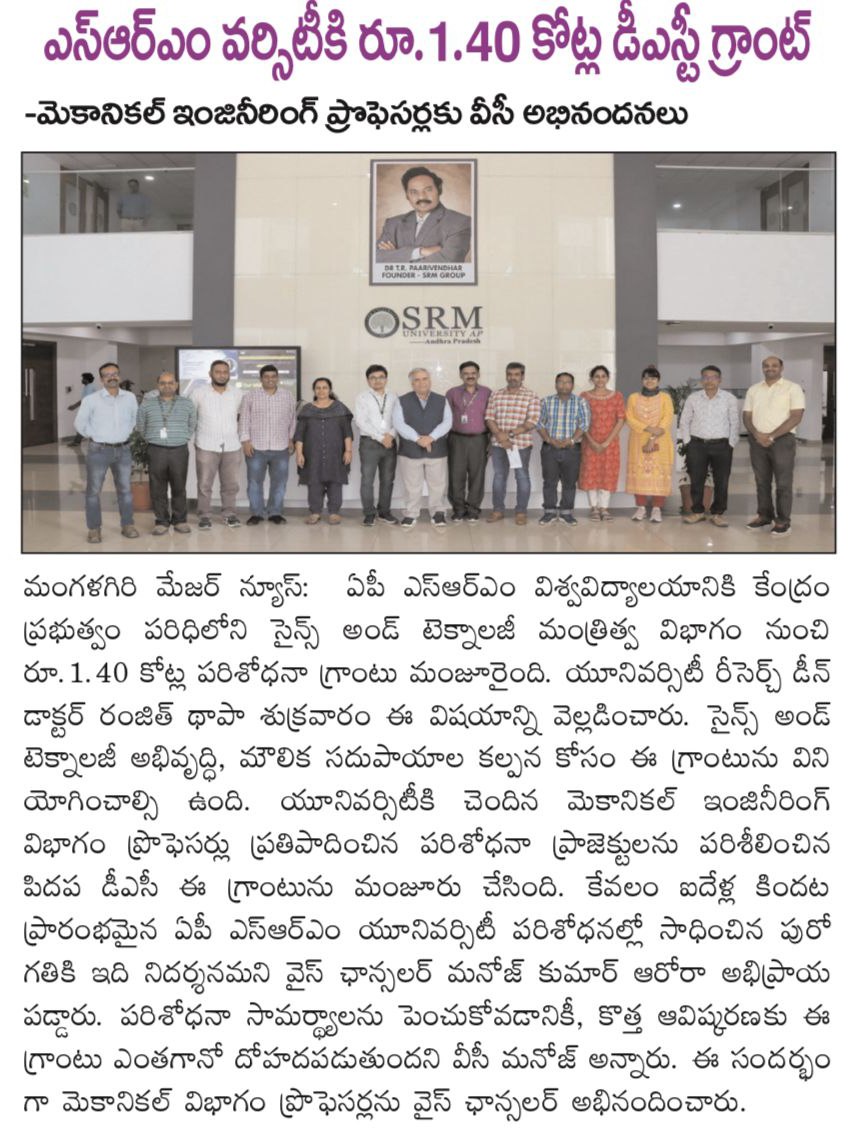
Vartha Prapancham
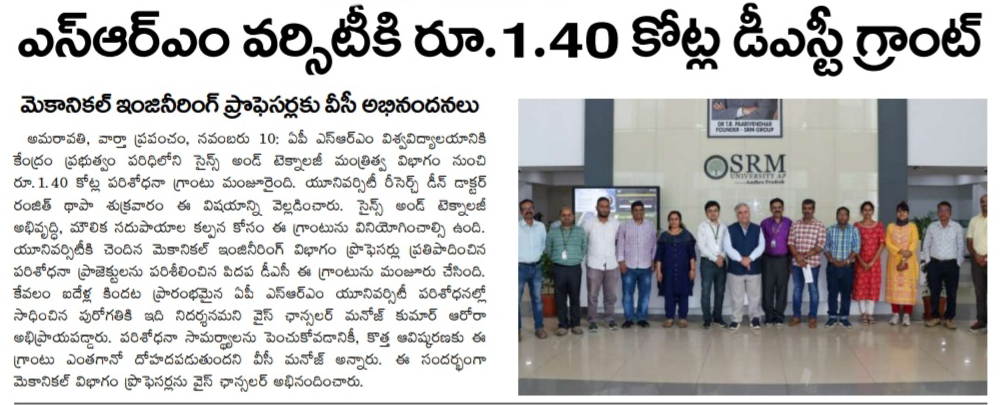
- Published in Newsroom
ICAFA 2023
The South India Times
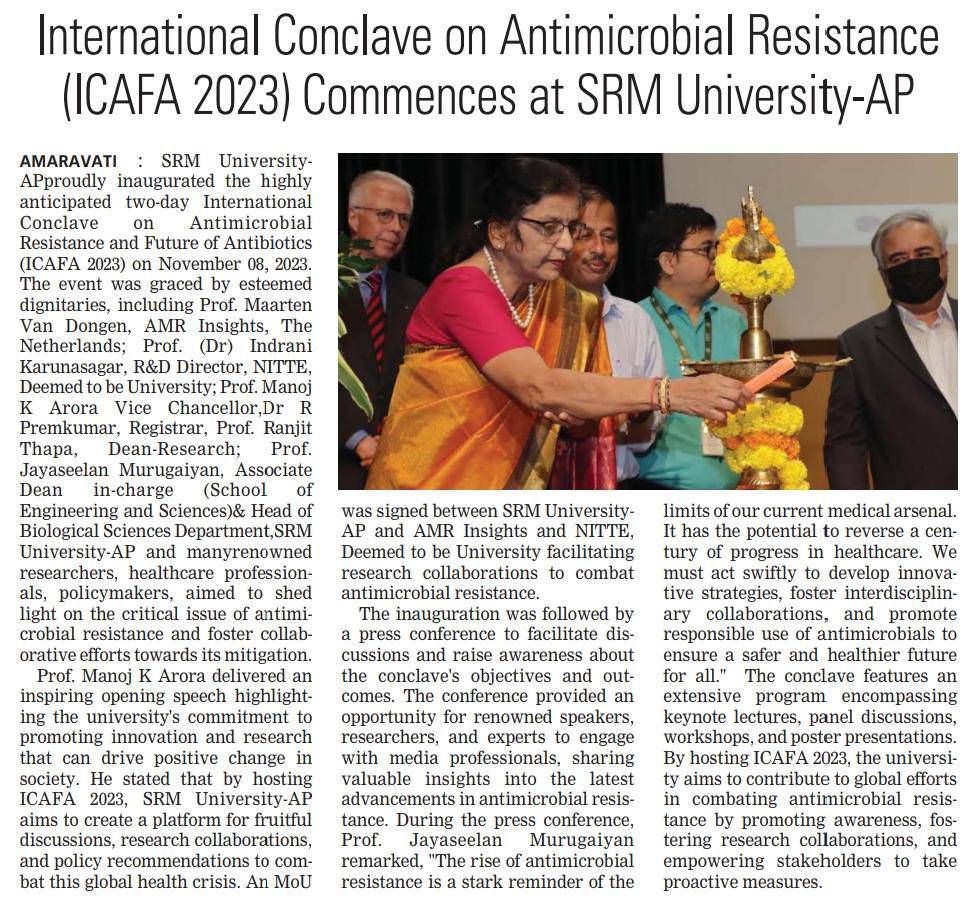
The New Indian Express

Echo of Arunachal
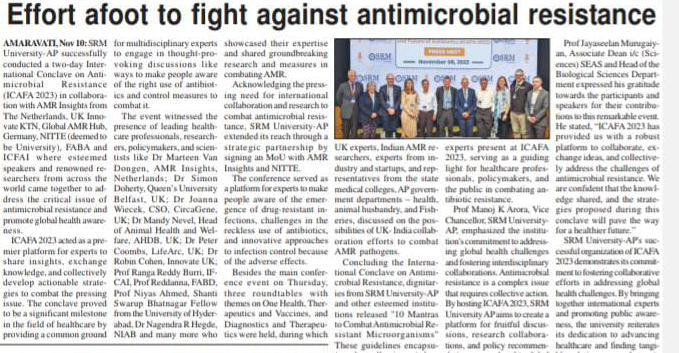
Deccan Chronicle

The Hindu
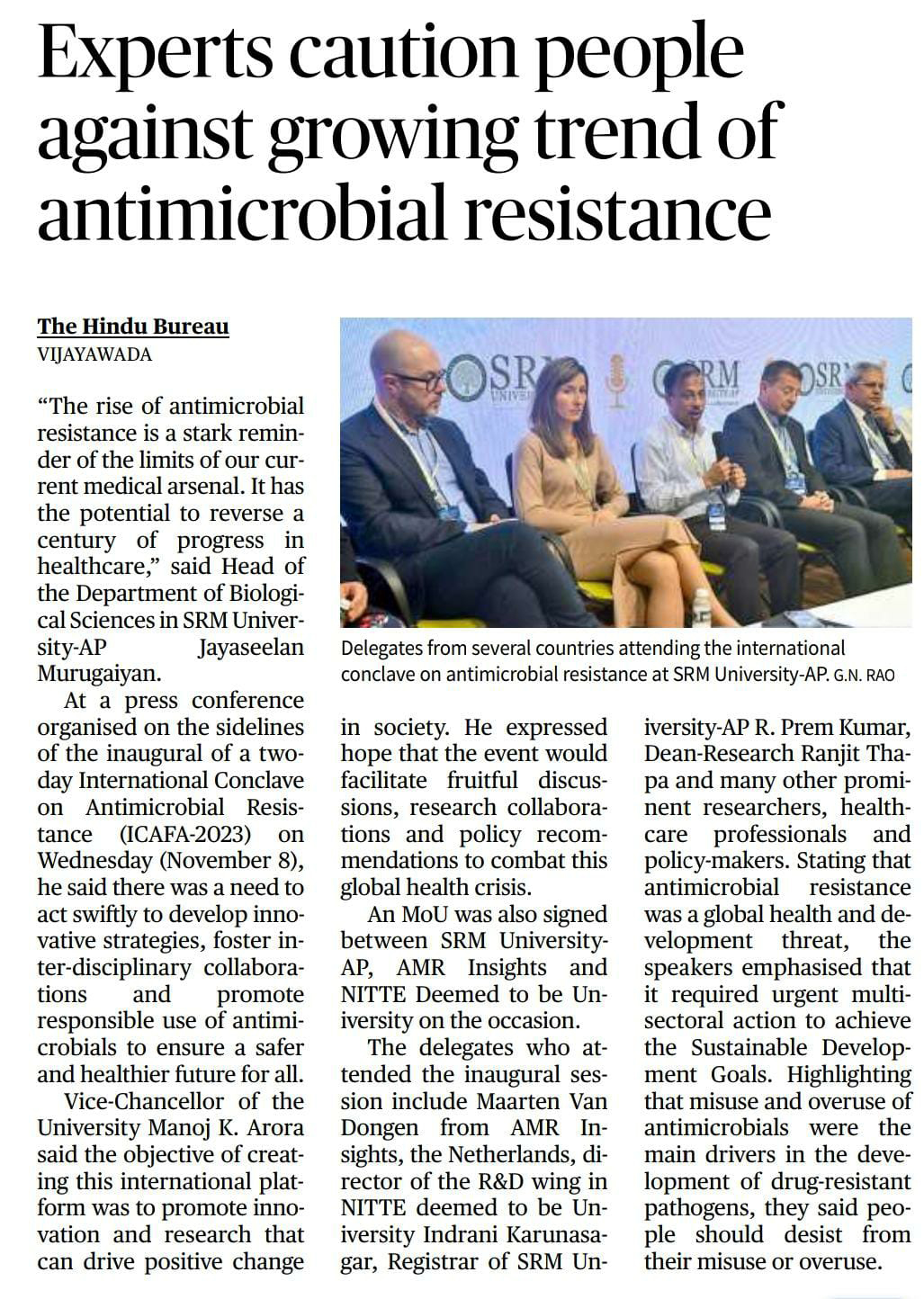
The New Indian Express

The Hans India
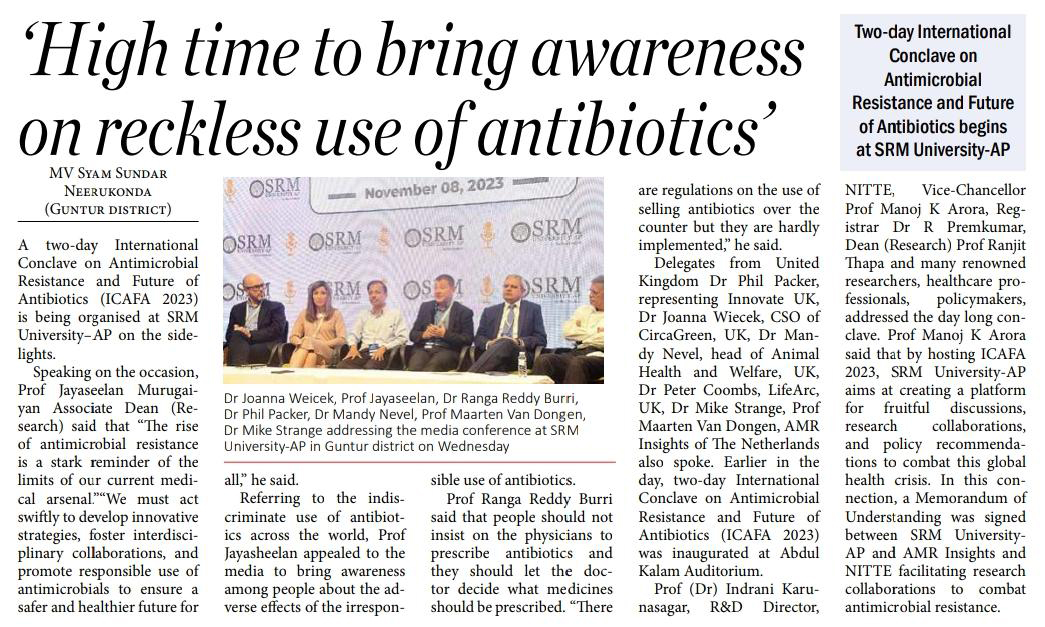
Newsvoir
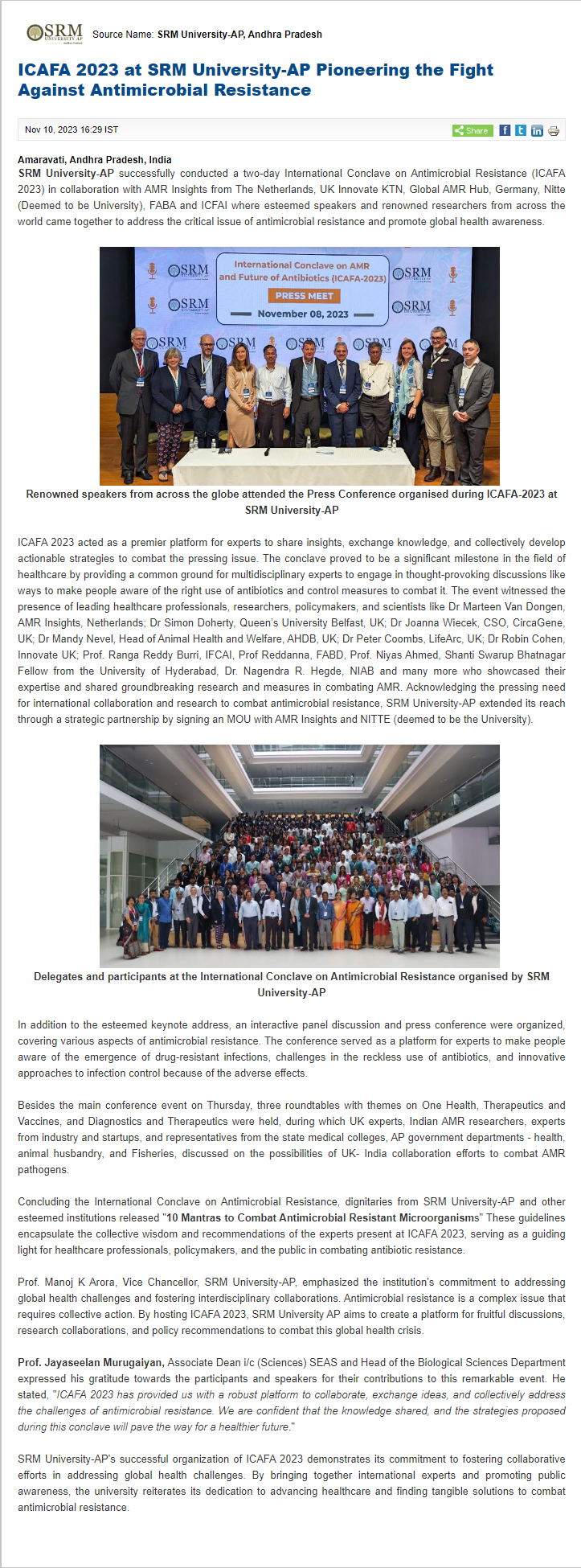
Andhra Prabha
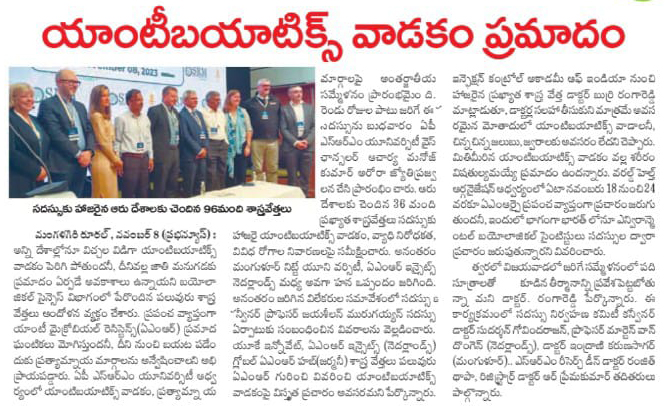
Sakshi
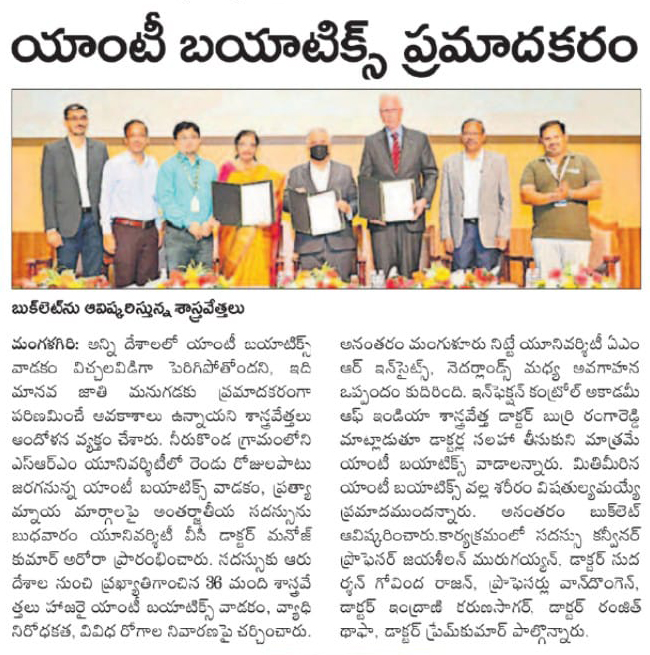
Eenadu
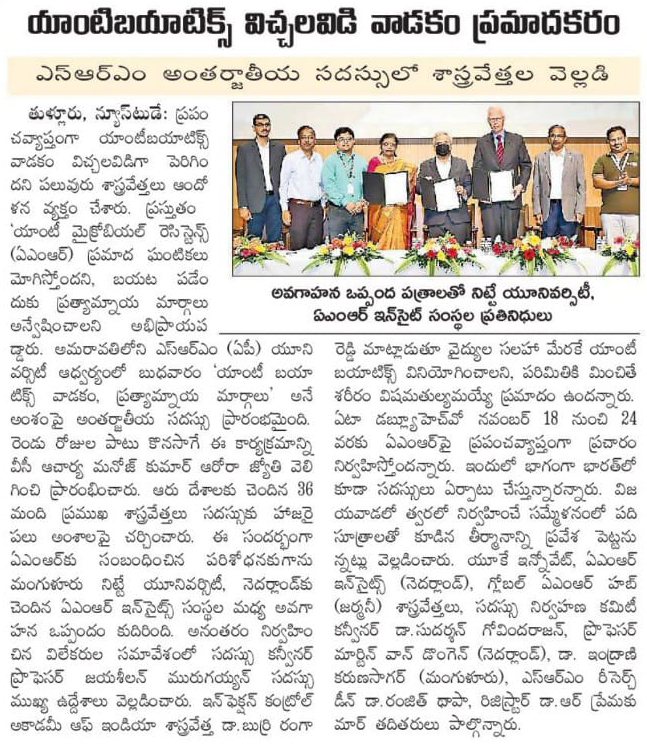
Andhra Patrika
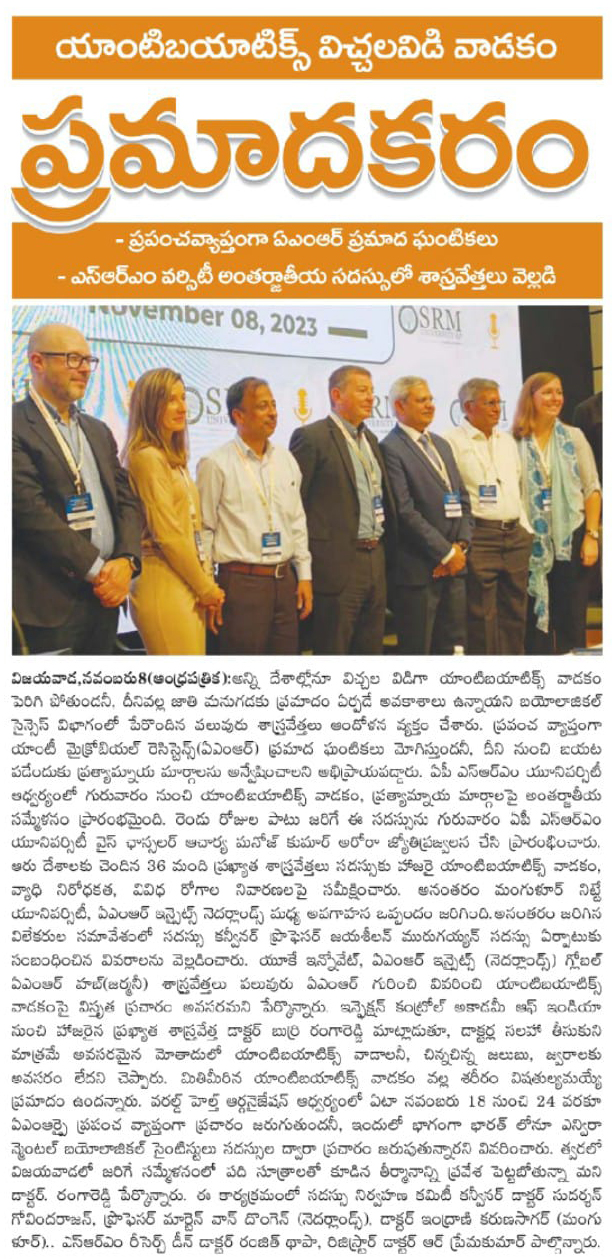
Vartha
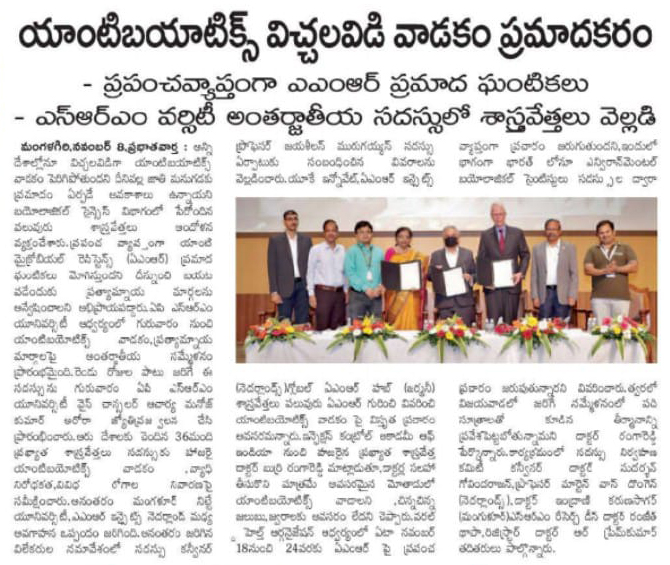
Surya
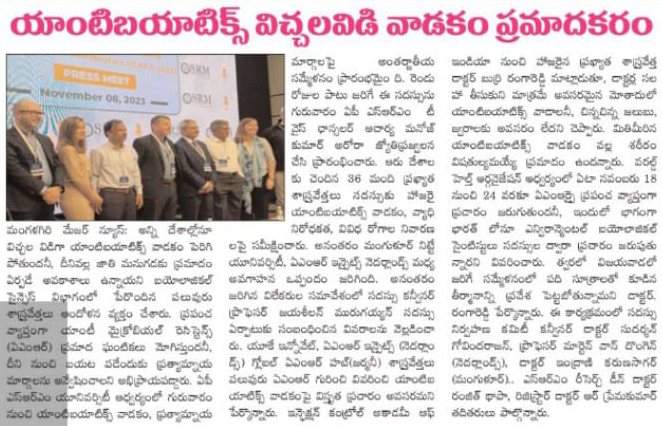
Bomma Reddy
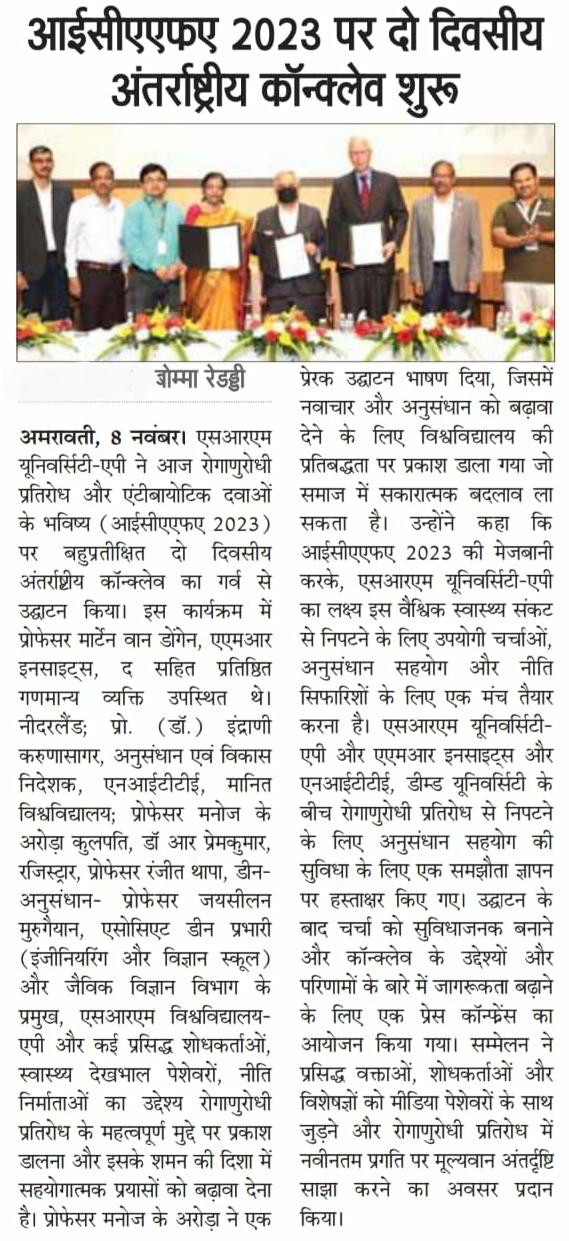
- Published in Newsroom
Innovative Pedagogies For Translating Education Into Providing Technological Solutions
- Published in Thought Leadership
SRM University-AP Hosts “NATYASWARA,” A Spectacular Inter-Collegiate Music and Dance Extravaganza
The New India Express
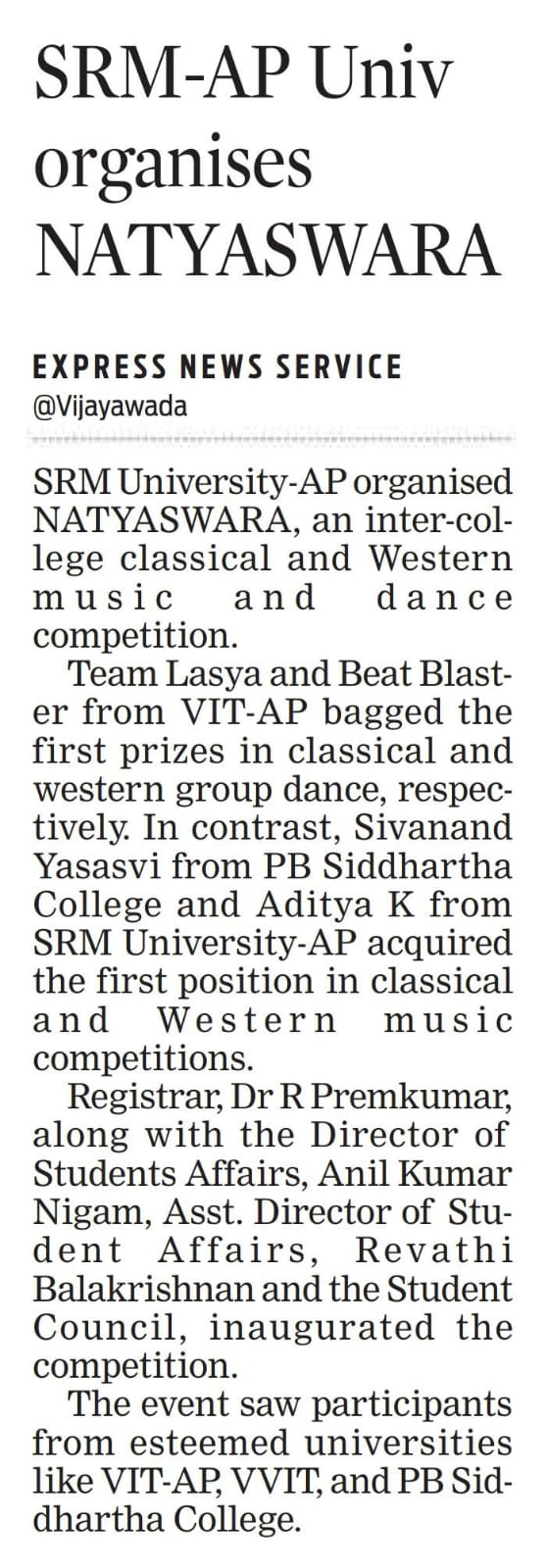
The Pioneer
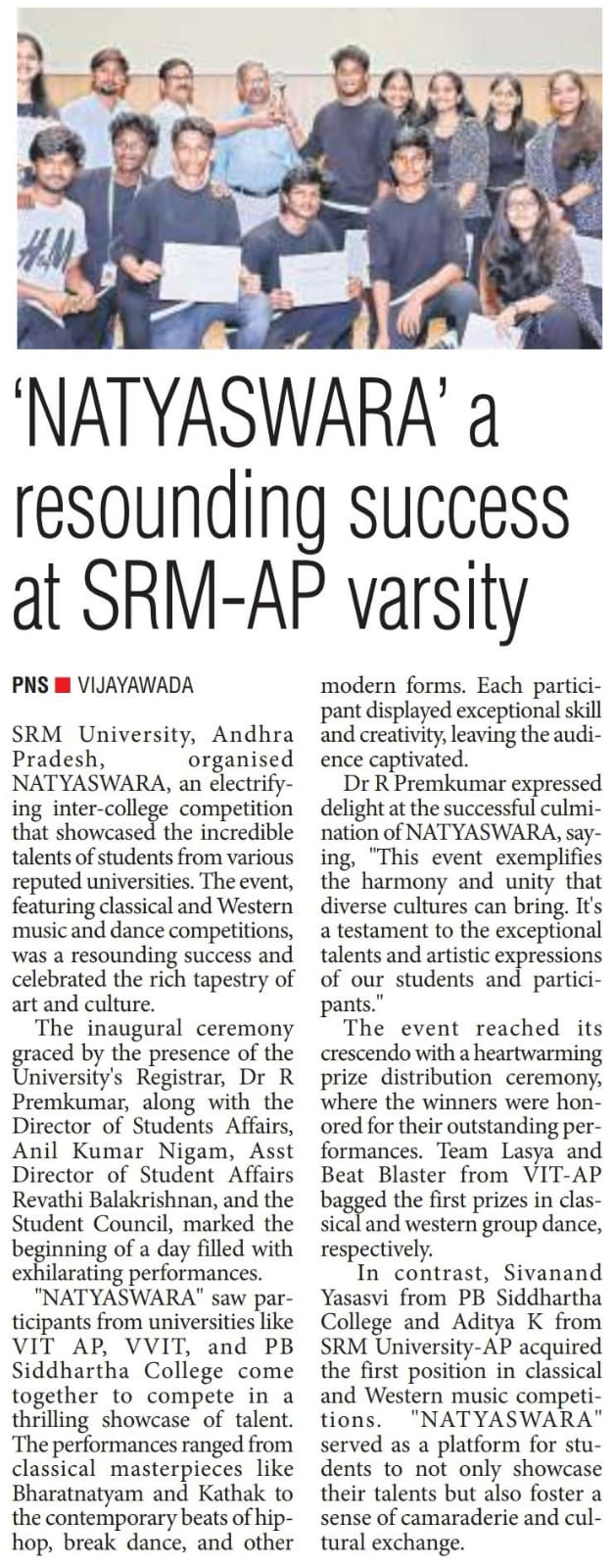
Vartha
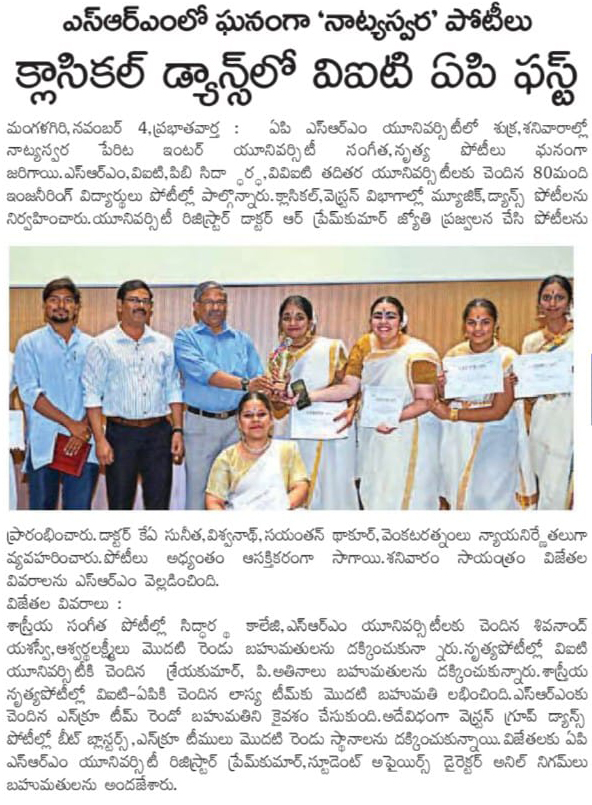
Surya

Eenadu
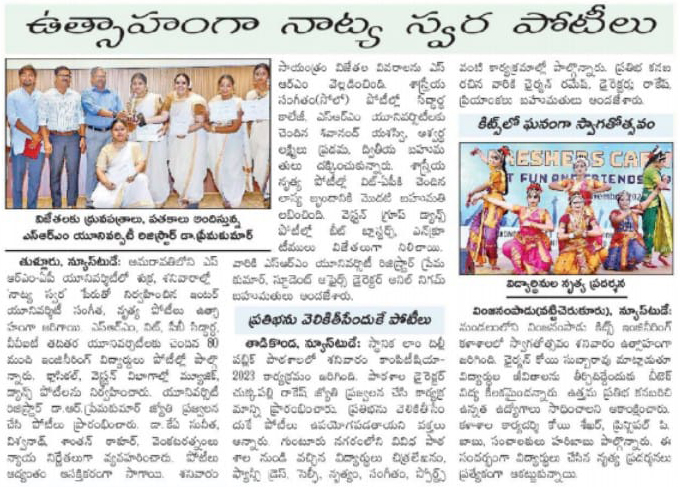
Telugu Patrika
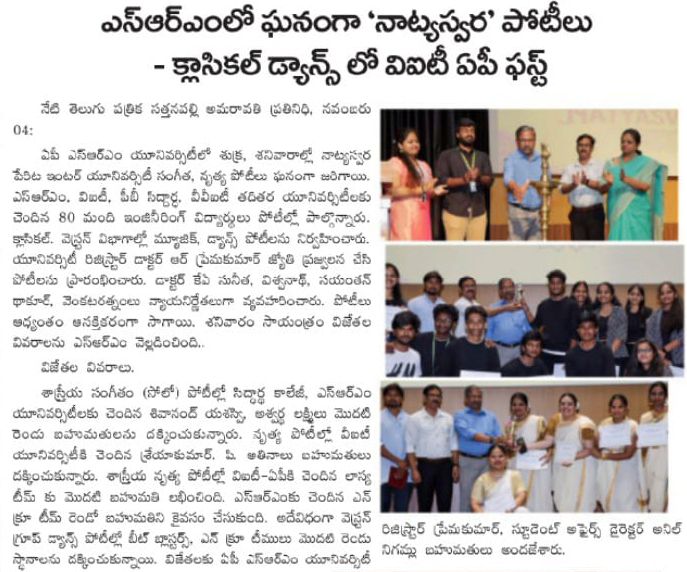
Visalaandhra
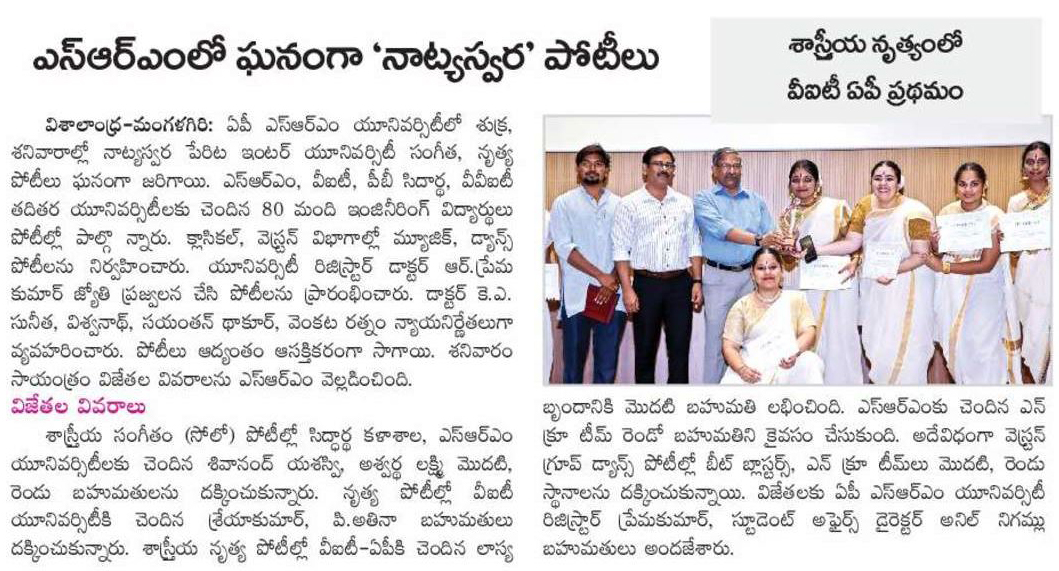
Andhra Patrika
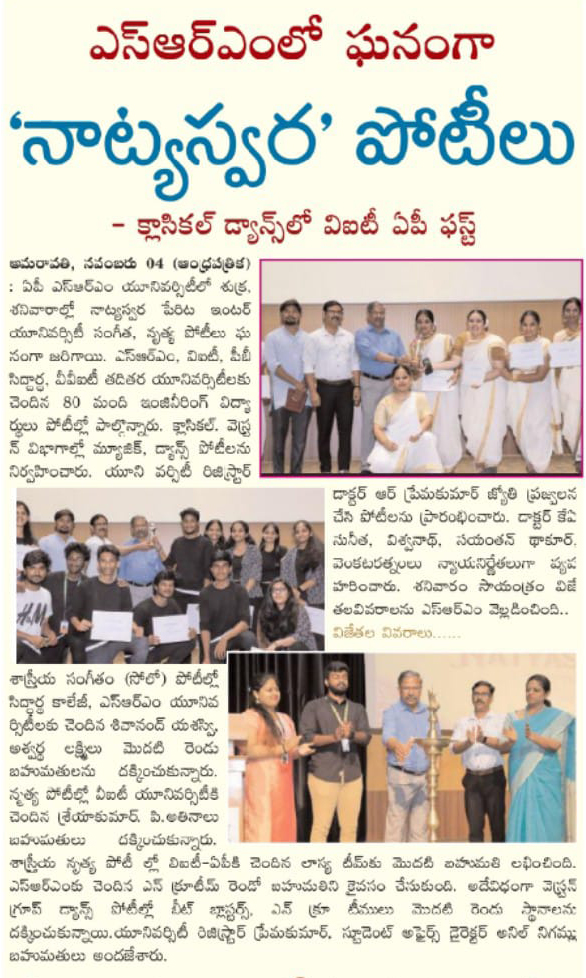
Vartha Prapancham
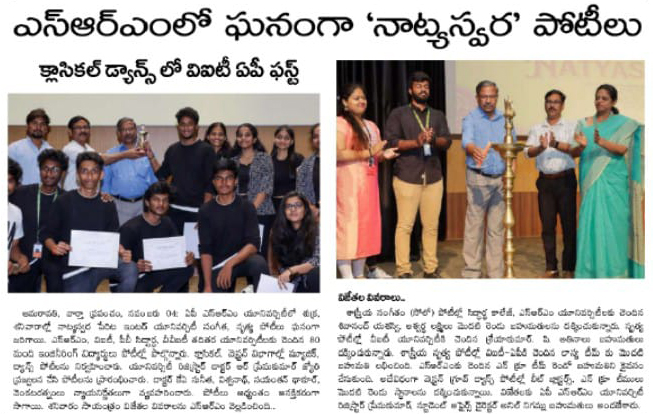
- Published in Newsroom
SRM University-AP Signed MOU with University of South Florida
The Hindu

The Times of India
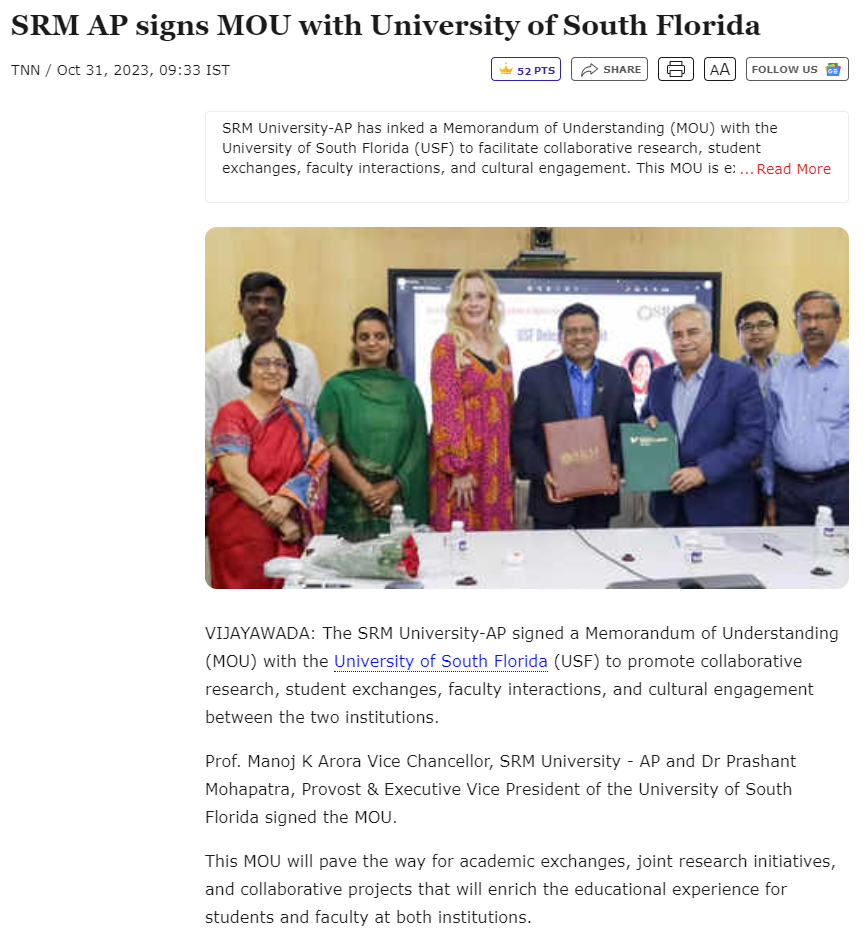
The New India Express

The Hans India
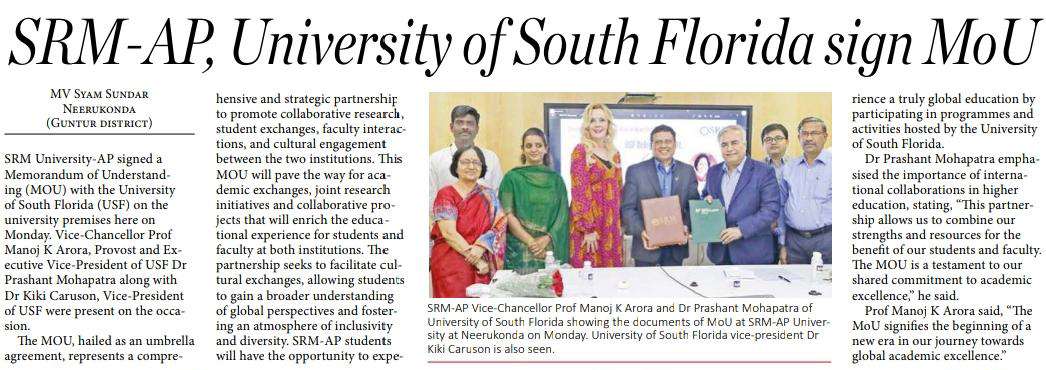
The Pioneer
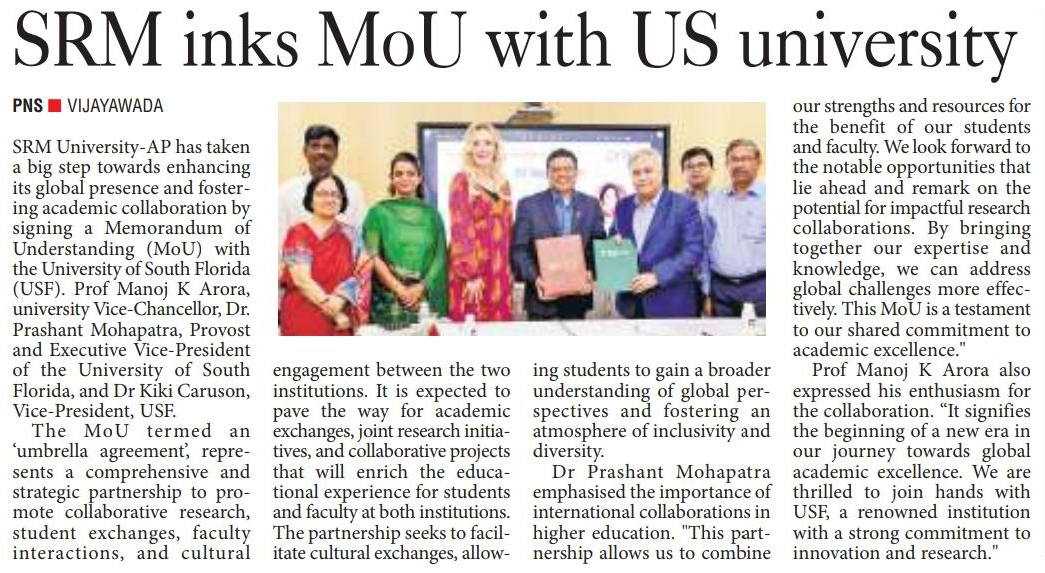
Eenadu
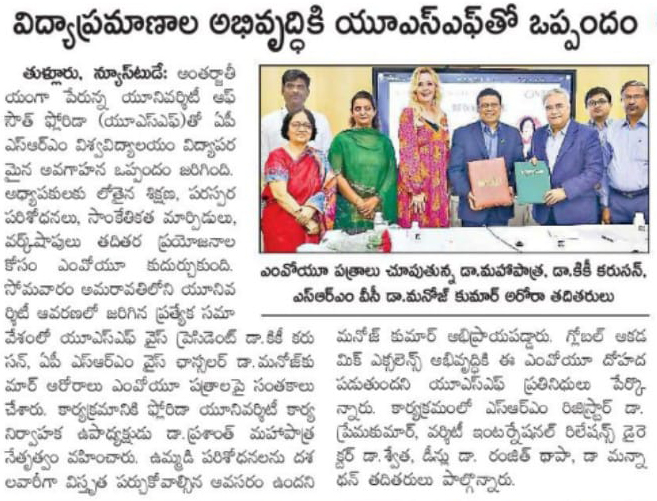
Surya

Andhra Prabha

Prajasakthi

Visalaandhra

Vartha

Vartha Prapancham

Arth Prakash

- Published in Newsroom
Explore the Human Mind and Behavior with the BSc Psychology Programme
Know and Apply! Psychological theory, Research and Practice with BSc Psychology degree
School of Liberal Arts and Social Science, SRM AP
The BSc Psychology programme is a captivating journey into the intricate world of the human mind and human behaviour. It’s a dynamic exploration of what makes us tick, why we behave the way we do, and how we can better understand ourselves and others.
Psychological science and the demand for psychologists in different fields is exponentially growing. The post Covid era has seen acceptance in active improvement in mental health practices and is not limited to treatment of psychological disorders and counselling. It extends to refining various professional domains such as military, sports, forensic sciences, education, organisational behaviour, developmental sciences, health behaviour, nutrition, artificial intelligence, and so on!

At SRM AP, students are nested in a modern and beautiful campus with updated infrastructure in the classrooms and an ever-improving laboratory. They are geared towards future-oriented research, comprehensive multidisciplinary approach in education, and are prepared to complete the course with a superior sense of mastery and achievement as graduates of BSc Psychology degree.
BSc Psychology Programme Details
The BSc Psychology programme is a holistic understanding towards the study of mental processes, emotions, and human behaviour and how it fits in the society, Let’s find out the eligibility of the course, its duration, and the subjects taught throughout the programme.
BSc Psychology Eligibility
To be eligible for a BSc in Psychology, you must meet the following criteria:
- Pass the 10+2 or equivalent exam from a recognised board with a minimum aggregate of 50% marks
- Complete a diploma course after passing class 10
- Be between 17 and 35 years old
- Preferable to have studied Psychology at the +2 level (Not mandatory)
Now, let’s move ahead, looking into the duration of the course.
BSc Psychology Duration
A Bachelor of Science (BSc) in Psychology programme typically has a duration of three years (for BSc degree) to four years (for BSc Psychology Hons .degree). This would enable students to pursue their academic goals at the global platform as well.
The BSc Psychology course covers a variety of subjects, including:
- Foundations of human behaviour
- Biological psychology
- Social psychology
- Developmental psychology
- Organisational behaviour
- Psychological disorders
- Organisational psychology
- Statistics in psychology
- Counselling psychology
- Health psychology
- Forensic Psychology
- Research Methodology
- Statistics for Social Sciences
Why BSc Psychology at SRM University-AP?
The School of Liberal Arts and Social Sciences at SRM University-AP, Andhra Pradesh, offers an undergraduate programme in Psychology. The School boasts of faculty from various reputed Universities having diverse specialisations and a rich record of research publications. The School encourages students to engage in experiential learning and context based learning with an option to explore their interests across disciplines. The students are actively supported in their endeavours to gain internship opportunities and research experience.
Interested? Reach out to us!
The BSc Psychology programme at SRM University-AP, offers an enriching and comprehensive journey into the fascinating realm of psychology. Through a well-rounded curriculum and dedicated faculty, students gain a profound understanding of the human mind and its intricacies. The programme not only equips them with the knowledge and skills to excel in various psychology subfields but also instils a scientific approach to understanding the mind-body connection.
Graduates emerge from this programme well-prepared to embark on diverse career paths in psychology, armed with the confidence and competence to make a meaningful impact on individuals and society. SRM University-AP, provides an ideal platform for aspiring psychologists to flourish and contribute positively to the world of psychology and beyond. Join now and embark on your journey to a rewarding career.
- Published in Admissions, Blog, Psychology


